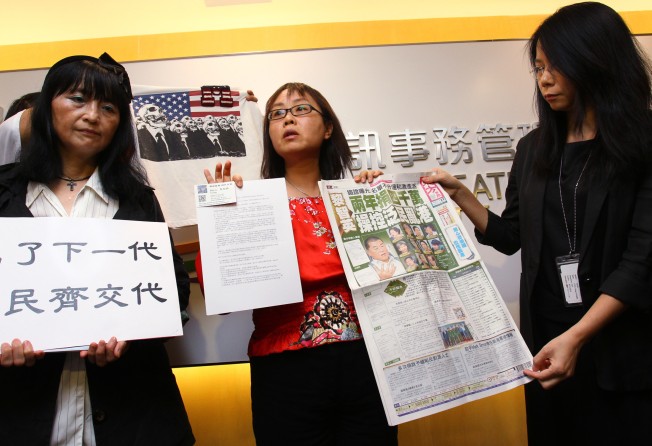Legislation and transparency would end controversy over political donations
Sonny Lo says the existing secretive nature of donations creates suspicions of impropriety

The ongoing controversy over donations to political groups and individual politicians has reopened the long overdue issue of the need for a political party law in Hong Kong.
Opponents to any such law argue that it would deter donors, who are reluctant to have their names revealed, from giving money to political groups and individual politicians.
Notwithstanding donor reluctance, a bigger problem is the existing secretive nature of political donations.
In a society sharply divided by political leanings, the lack of regulation creates suspicions of impropriety and leaves groups and individuals open to political attacks.
Enacting a Hong Kong-style political party law will not only add more transparency, it can arguably do so while dealing with the anxieties of both donors and political parties that are unwilling to disclose how much they gained from donors.
There are two ways to do this.
The first option is to define a political party as a group of citizens participating in elections collectively, while allowing it to refrain from disclosing the identities of donors. But for those political groups that register as political parties under a new political party law, they will enjoy the benefit of having government subsidies or electoral reimbursement after an election, both at the legislative and district levels.
In other words, the more transparent a political party is, the more subsidies or reimbursements it can get from the government post election.
The government can set a certain formula or percentage of reimbursement to encourage political groups to register as political parties. This option is aimed at rewarding political groups that register themselves as political parties.
Political groups that do not wish to reveal the identities of their donors will forgo financial aid, while those that open up their donation records for scrutiny will get help. Such a political party law can strike a balance between the different groups.
If enacting a political party law is a step too far for Hong Kong now, one other option is to draw up a political donation law. This can be considered a mid-way point between the current laissez-faire government policy on political parties and a full-fledged party law.
This political donation law can offer tax exemptions to the donors concerned and also government subsidies to the political organisations. Again, the more transparent a political organisation, the more tax exemptions its donors can enjoy, and the more government subsidies the organisation may receive.
A political donation law can also cover the conduct of individual politicians, not just political groups.
There are two ways to regulate the financing of individual politicians. One option is to allow politicians to hide the identity of their donors, but they must declare the amount of their political donations. In exchange, the government could give them some support, say, towards the provision of office premises.
The second option is to encourage donors to reveal themselves in exchange for tax exemptions. The politicians themselves will also have to declare the amount they receive.
For too long, Hong Kong has lived without a political party law.
Currently, Legislative Council rules require lawmakers to disclose "material benefits" from a single source where the total value exceeds 5 per cent of their annual remuneration, or one-off benefits over HK$10,000.
Thus, five pro-democracy lawmakers accused of secretly accepting millions of dollars in donations from media mogul Jimmy Lai Chee-ying may face official investigations, after a Beijing-loyalist group asked Legco's committee on members' interest to investigate the matter.
In Western democracies, political party laws generally aim to introduce fairness in party and campaign financing, and provide tax incentives to both donors and political organisations.
The Hong Kong case is arguably different. However, it can still enact a law that is adapted to its circumstances. At the very least, a political donation law can encourage existing political organisations to register themselves legally.
If the Hong Kong government has been studying the feasibility of introducing a political party law yet finds it difficult to do so, a compromise in the form of a political donation law should be considered.
There are many benefits to having such a law in Hong Kong.
First and foremost, the mass media and citizens would stop seeing political donations as secretive.
Second, there would be far fewer political attacks targeted at individual politicians and political groups, thus making Hong Kong hopefully more politically harmonious and less scandal prone.
Third, a political donation law can be an experiment that, if successful, would perhaps move towards a more formal political party law in the long run.
Sonny Lo is professor and head of the department of social sciences at the Hong Kong Institute of Education